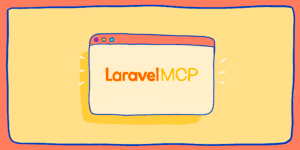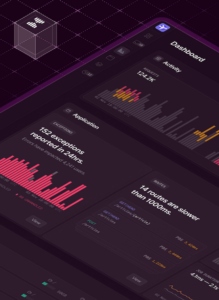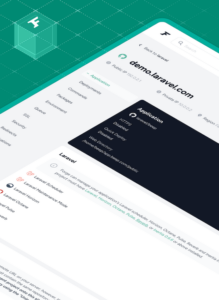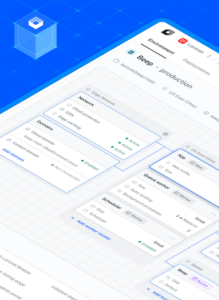Hiring Laravel Developers? Then You Should Know How to Manage Laravel Projects Effectively!
Table of Contents
- Cases when Laravel does not work
- Soft skills of a Laravel Developer
- Pros & cons of Laravel
- What are top Laravel instruments and tools?
- How and where is Laravel used?
- Let’s consider Difference between Junior, Middle, Senior, Expert/Team Lead developer roles.
- TOP 14 Facts about Laravel
- TOP 10 Laravel Related Technologies
- Laravel AI Tools
- Laravel Boost
- Laravel MCP
Cases when Laravel does not work
- Unsupported PHP Version: Laravel requires PHP version 7.3 or higher. If you are using an older version of PHP, Laravel will not work properly.
- Missing Dependencies: Laravel relies on various external libraries and packages. If these dependencies are not installed or updated correctly, Laravel may encounter issues.
- Insufficient Server Requirements: Laravel has specific server requirements, such as the need for various PHP extensions. If your server does not meet these requirements, Laravel may not work as intended.
- Improper Configuration: Laravel relies on a well-configured environment to function correctly. Incorrect configuration settings, such as improper database credentials or missing environment variables, can lead to issues with Laravel.
- Conflicting Packages: If you have other packages or libraries installed that conflict with Laravel’s dependencies or functionality, it can cause conflicts and prevent Laravel from working correctly.
- File Permission Issues: Laravel requires certain directories to have proper read and write permissions. If the file permissions are not set correctly, Laravel may encounter issues with file operations.
- Cache and Session Configuration: Laravel uses caching and session management for improved performance. If the caching or session configuration is not properly set up, it can cause problems with Laravel.
- Database Connection Problems: If the database connection settings are incorrect or if there are issues with the database server, Laravel may not be able to establish a connection and will not work.
- Server Compatibility Issues: Certain server configurations or hosting environments may not be compatible with Laravel due to restrictions or limitations imposed by the server.
- Code Errors: Lastly, if there are syntax errors, logical errors, or other bugs in your Laravel code, it can cause the application to break or not function as expected.
Soft skills of a Laravel Developer
Soft skills are important for a Laravel Developer to complement their technical expertise and enhance their overall effectiveness in the workplace.Junior
- Effective Communication: Ability to clearly convey ideas and collaborate with team members.
- Adaptability: Willingness to learn and adapt to new technologies and methodologies.
- Problem Solving: Analytical thinking and troubleshooting skills to resolve coding issues.
- Time Management: Efficiently managing tasks and meeting project deadlines.
- Teamwork: Working well within a team environment and contributing to collective goals.
Middle
- Leadership: Demonstrating leadership qualities and guiding junior developers.
- Project Management: Ability to coordinate and manage multiple projects simultaneously.
- Mentoring: Assisting junior developers in their professional growth and skill development.
- Client Interaction: Effectively communicating with clients to understand their requirements.
- Critical Thinking: Evaluating complex problems and proposing innovative solutions.
- Collaboration: Collaborating with cross-functional teams to achieve project objectives hire remote laravel developers.
- Attention to Detail: Paying close attention to detail to ensure high-quality code.
Senior
- Strategic Thinking: Developing long-term strategies and roadmaps for projects.
- Technical Leadership: Guiding and mentoring developers in technical decision-making.
- Conflict Resolution: Resolving conflicts and promoting a positive work environment.
- Client Management: Building and maintaining strong relationships with clients.
- Code Review: Conducting thorough code reviews to maintain code quality and standards.
- Team Building: Building and nurturing high-performing development teams.
- Innovation: Identifying and implementing innovative solutions to improve processes.
- Business Acumen: Understanding the business goals and aligning technical solutions accordingly.
Expert/Team Lead
- Strategic Planning: Developing and executing long-term technical strategies.
- Decision Making: Making informed decisions to drive project success.
- Resource Management: Efficiently allocating and managing resources within the team.
- Risk Management: Identifying and mitigating risks to ensure project success.
- Client Engagement: Engaging with clients to understand their business needs and provide technical guidance.
- Continuous Learning: Keeping up-to-date with the latest industry trends and technologies.
- Presentation Skills: Delivering effective presentations to stakeholders and clients.
- Process Improvement: Identifying areas for process improvement and implementing solutions.
- Technical Documentation: Creating comprehensive technical documentation for projects.
- Quality Assurance: Ensuring high-quality code and adherence to coding standards.
- Team Management: Managing and motivating development teams to achieve project goals.
Pros & cons of Laravel
7 Pros of Laravel
- Efficient Routing System: Laravel offers a powerful routing system that allows developers to define clean and SEO-friendly URLs for their web applications. This makes it easier to manage and navigate through different pages of the application.
- Modular Architecture: Laravel follows a modular architecture, which means developers can easily break down their application into smaller, independent modules. This promotes code reusability, maintainability, and scalability.
- Eloquent ORM: Laravel’s Eloquent ORM (Object-Relational Mapping) provides a simple and expressive way to interact with the database. It allows developers to work with database records using PHP syntax, making database operations more intuitive and efficient.
- Blade Templating Engine: Laravel includes Blade, a powerful templating engine that simplifies the process of building user interfaces. Blade templates offer a clean syntax with features like template inheritance, sections, and reusable components, making it easier to create dynamic and responsive web pages.
- Built-in Authentication and Authorization: Laravel comes with built-in authentication and authorization functionalities, making it easier to implement user authentication, registration, and access control in web applications. It provides a secure and convenient way to manage user authentication without much effort dedicated laravel developers.
- Active Community and Ecosystem: Laravel has a vibrant and active community of developers who contribute to its growth and provide support through forums, documentation, and open-source packages. Dedicated laravel developers offers a wide range of third-party libraries and extensions, making it easier to integrate additional functionalities into your application.
- Testing and Debugging Tools: Laravel provides robust testing and debugging tools, allowing developers to write unit tests and perform automated testing of their applications. The framework also offers detailed error handling and logging features, making it easier to identify and fix issues.
7 Cons of Laravel
- Learning Curve: As Laravel is a feature-rich framework with its own syntax and conventions, it may have a slightly steeper learning curve for beginners compared to simpler frameworks. However, the extensive documentation and active community support help mitigate this drawback.
- Performance Overhead: Although Laravel offers a powerful set of features, some developers argue that it may introduce performance overhead compared to lightweight frameworks. However, with proper optimization techniques and caching mechanisms, the impact on performance can be minimized.
- Complexity for Small Projects: For small-scale projects with simple requirements, Laravel’s extensive features and components may be considered overkill. In such cases, using a simpler framework or building from scratch may be more appropriate.
- Upgrade Challenges: Upgrading Laravel to newer versions can sometimes be challenging, especially if the application heavily relies on deprecated features or third-party packages that are not compatible with the latest version. However, Laravel provides detailed upgrade guides to help developers navigate through these challenges.
- Server Requirements: Laravel requires certain server requirements, including PHP and database versions, which may not be compatible with all hosting providers. However, most popular hosting providers support Laravel, and there are alternative hosting solutions available specifically designed for Laravel applications.
- Community Package Quality: While Laravel has a vast ecosystem of community-contributed packages, the quality and maintenance of these packages can vary. It is essential to thoroughly evaluate and choose reliable packages from trusted sources to ensure compatibility and long-term support.
- Versioning Stability: In the past, Laravel has experienced occasional breaking changes between major versions, which required developers to update their codebase accordingly. However, the Laravel team has made efforts to improve versioning stability and provide backward compatibility in recent releases.
What are top Laravel instruments and tools?
- Laravel Forge: Laravel Forge is a server management tool that simplifies the process of deploying, configuring, and managing Laravel applications. It was introduced in 2013 and has gained popularity for its ease of use and powerful features. It allows developers to provision and deploy servers, manage SSL certificates, and monitor server performance.
- Homestead: Homestead is a pre-packaged Vagrant box that provides a development environment for Laravel applications. It was first released in 2014 and has since become the standard development environment for Laravel. Homestead includes all the necessary software and configuration needed to run Laravel applications, making it easy to set up and get started with Laravel development.
- Laravel Nova: Laravel Nova is a beautifully designed administration panel for Laravel applications. It was released in 2018 and provides a simple and intuitive interface for managing resources in a Laravel application. With Nova, developers can easily create CRUD interfaces for their models, define custom actions, and generate metrics and reports.
- Laravel Dusk: Laravel Dusk is a testing tool that allows developers to write browser automation tests for their Laravel applications. It was introduced in 2016 and has become a popular choice for testing Laravel applications. Dusk provides a fluent API for interacting with web pages, making it easy to write tests that simulate user interactions and verify the expected behavior of the application.
- Laravel Mix: Laravel Mix is a tool that simplifies the process of compiling assets for Laravel applications. It was introduced in 2016 as part of Laravel’s ecosystem. With Mix, developers can write their asset compilation logic in a simple and intuitive JavaScript configuration file, which is then executed by Laravel’s build system. Mix supports compiling CSS, JavaScript, and other assets, as well as optimizing and versioning them for production use.
- Laravel Telescope: Laravel Telescope is a debugging and profiling tool for Laravel applications. It was released in 2018 and provides a real-time view of the application’s performance and errors. Telescope allows developers to monitor database queries, view log entries, and analyze the execution time of each request. It is a valuable tool for identifying and resolving performance issues in Laravel applications.
- Laravel Horizon: Laravel Horizon is a powerful queue monitoring tool for Laravel applications. It was introduced in 2018 and provides a dashboard for managing and monitoring the application’s queues. Horizon allows developers to monitor the progress of queued jobs, view failed jobs, and adjust the queue workers’ configuration. It is designed to make working with queues in Laravel applications more efficient and manageable.
How and where is Laravel used?
| Case Name | Case Description |
|---|---|
| 1. E-commerce Websites | Laravel is widely used for developing e-commerce websites due to its robust features and scalability. It provides secure payment gateways, inventory management, order tracking, and seamless integration with third-party services. For example, the popular e-commerce platform “Shopify” is built on Laravel, handling millions of online transactions daily. |
| 2. Content Management Systems (CMS) | Laravel offers an excellent foundation for building feature-rich content management systems. It provides functionalities like user management, content publishing, version control, and customizable templates. A well-known CMS built with Laravel is “October CMS,” which powers thousands of websites worldwide. |
| 3. Social Networking Platforms | Laravel’s expressive syntax and powerful routing system make it an ideal choice for developing social networking platforms. It offers user authentication, real-time notifications, activity feeds, and messaging systems. “PeepSo,” a popular social networking plugin for WordPress, is built using Laravel. |
| 4. Enterprise Resource Planning (ERP) Systems | Laravel’s modular structure and extensive libraries make it suitable for developing complex enterprise resource planning systems. It provides functionalities like inventory management, order processing, financial management, and reporting. “Odoo,” a widely used open-source ERP system, utilizes Laravel for its backend development hire remote laravel developers. |
| 5. Online Learning Platforms | Laravel’s flexibility and ease of use make it a popular choice for building online learning platforms. It enables features like course management, user progress tracking, quiz creation, and discussion forums. “Skillshare,” one of the largest online learning platforms, uses Laravel for its backend infrastructure. |
| 6. Booking and Reservation Systems | Laravel’s robust database management capabilities and user authentication system make it suitable for developing booking and reservation systems. It offers features like real-time availability checking, secure payment processing, and booking management. “Reservio,” a widely used online booking system, leverages Laravel for its development. |
| 7. SaaS Applications | Laravel’s modular architecture and built-in support for multi-tenancy make it an excellent choice for developing Software-as-a-Service (SaaS) applications. It provides features like user management, subscription billing, data isolation, and API integrations. “Laravel Spark,” a popular SaaS boilerplate, is built entirely on Laravel. |
| 8. Job Portals | Laravel’s powerful querying capabilities and user authentication system make it ideal for building job portals. It enables functionalities like job posting, candidate management, resume parsing, and search filters. “Workable,” a leading job board software, relies on Laravel for its development. |
| 9. Real Estate Websites | Laravel’s elegant syntax and built-in database management tools make it a suitable choice for developing real estate websites. It allows features like property listing, search filters, map integration, and contact management. “Laravel Real Estate,” a widely used real estate platform, is built using Laravel. |
| 10. Project Management Tools | Laravel’s modular structure and extensive libraries make it a preferred framework for developing project management tools. It offers functionalities like task management, team collaboration, time tracking, and reporting. “ActiveCollab,” a popular project management software, is built on Laravel. |
Let’s consider Difference between Junior, Middle, Senior, Expert/Team Lead developer roles.
| Seniority Name | Years of experience | Responsibilities and activities | Average salary (USD/year) |
|---|---|---|---|
| Junior | 0-2 years | Assisting senior developers in coding, testing, and debugging software applications. Learning and gaining proficiency in programming languages, frameworks, and tools. Collaborating with the team to deliver assigned tasks and projects. | 40,000 – 60,000 |
| Middle | 2-5 years | Developing software applications independently. Participating in the design and architecture of software systems. Writing clean and maintainable code. Collaborating with cross-functional teams to deliver complex projects. Mentoring junior developers. | 60,000 – 80,000 |
| Senior | 5-8 years | Leading software development projects. Designing and implementing robust and scalable software solutions. Mentoring and providing guidance to junior and middle developers. Collaborating with stakeholders to gather requirements and propose technical solutions. | 80,000 – 100,000 |
| Expert/Team Lead | 8+ years | Leading a team of developers. Setting technical direction and making architectural decisions. Mentoring and coaching team members. Collaborating with product managers and stakeholders to define project scope and deliverables. Ensuring high-quality code and adherence to best practices. | 100,000+ |
TOP 14 Facts about Laravel
- Laravel is an open-source PHP framework developed by Taylor Otwell and released in June 2011. It has gained immense popularity and has become one of the most widely used PHP frameworks worldwide.
- Laravel follows the Model-View-Controller (MVC) architectural pattern, which separates the application logic into three interconnected components: the model (data handling), the view (user interface), and the controller (handles requests and manages the flow of data between the model and view).
- One of Laravel’s standout features is its elegant syntax and expressive code, which makes it easy and enjoyable to work with. It promotes clean and readable code, enhancing developer productivity.
- Laravel includes a powerful ORM (Object-Relational Mapping) called Eloquent, which simplifies database operations by allowing developers to interact with databases using PHP syntax instead of writing raw SQL queries.
- The framework provides a robust routing system that allows developers to define and handle various HTTP request methods easily. It supports RESTful routing and provides clean URLs for better search engine optimization (SEO).
- Laravel offers a comprehensive and modular packaging system called Composer, which enables developers to manage and install third-party libraries effortlessly hire remote laravel developers. This promotes code reusability and accelerates development speed.
- With Laravel, developers can easily implement authentication and authorization mechanisms, including user registration, login, and password reset. The framework provides pre-built controllers, views, and migration files for these functionalities.
- Laravel has a built-in task scheduler that allows developers to automate repetitive tasks by defining cron jobs within the codebase. This helps to streamline background processes, such as sending emails, clearing caches, and performing database backups.
- The framework emphasizes the importance of testing by providing a testing suite called PHPUnit. Laravel’s testing tools enable developers to write unit tests, integration tests, and even browser tests to ensure the stability and reliability of their applications.
- Laravel comes with a powerful and intuitive templating engine called Blade, which allows developers to write dynamic and reusable views. Blade templates support various features like conditional statements, loops, and template inheritance.
- Artisan, the command-line interface (CLI) included with Laravel, offers a wide range of useful commands for common development tasks. It enables developers to generate boilerplate code, run migrations, manage packages, and perform other routine operations with just a few keystrokes.
- Laravel has a vibrant and supportive community with a vast ecosystem of packages and extensions. The official Laravel website provides extensive documentation, tutorials, and a forum where developers can seek help, share knowledge, and contribute to the framework’s growth.
- Thanks to its popularity, Laravel has a large job market with numerous career opportunities for developers proficient in the framework. Many companies worldwide use Laravel for their web development projects, increasing the demand for skilled Laravel developers.
- Laravel has a strong commitment to backward compatibility, ensuring that applications built on older versions of the framework continue to work seamlessly with newer versions. This reduces the effort required for upgrading and maintaining Laravel applications over time.
- Laravel’s ecosystem extends beyond web development. It offers tools like Laravel Dusk for browser automation testing, Laravel Echo for real-time event broadcasting, and Laravel Passport for API authentication. These additional components enrich the framework’s capabilities and cater to various development needs.
TOP 10 Laravel Related Technologies
PHP
PHP is the most fundamental language for Laravel software development. It is a widely-used scripting language known for its simplicity and flexibility. With a large community base and extensive documentation, PHP provides a solid foundation for building Laravel applications.Laravel Framework
Laravel is a free, open-source PHP framework designed for web application development. It follows the MVC (Model-View-Controller) architectural pattern, making it easy to organize and maintain code. Laravel provides various features like routing, ORM, caching, and authentication, which streamline the development process.Composer
Composer is a dependency management tool for PHP. It allows developers to declare the libraries and packages their project depends on and automatically installs and updates them. Laravel heavily relies on Composer for managing its dependencies, making it an essential tool for Laravel software development.Blade Templating Engine
Blade is the default templating engine used in Laravel. It provides a simple and intuitive syntax for defining views and layouts. Blade templates can be easily extended, allowing for code reusability and modular development.Eloquent ORM
Eloquent is Laravel’s Object-Relational Mapping (ORM) system. It simplifies database operations by mapping database tables to PHP objects. With Eloquent, developers can interact with the database using expressive and fluent syntax, reducing the need for writing raw SQL queries.PHPUnit
PHPUnit is a unit testing framework for PHP. It is widely used in Laravel software development for writing automated tests to ensure code quality and detect bugs. PHPUnit provides a comprehensive set of assertions and test case classes, making it easy to write robust test suites.Git
Git is a distributed version control system that helps developers manage and track changes in their codebase. It allows for collaboration, branching, and merging of code, making it an essential tool for Laravel software development. Git also integrates seamlessly with popular hosting platforms like GitHub and Bitbucket.
Laravel AI Tools

Laravel Boost
Introducing Laravel Boost, the official AI toolkit by the Laravel team. Unleash the power of contextual AI to turbocharge your workflow and increase your productivity. With 15 specialized tools at your fingertips, Laravel Boost gives you intelligent superpowers to search and scan codebases, analyze logs, query databases, inspect routes, and more. Or, consult our comprehensive documentation API for Laravel-optimized and precision-engineered code generation.
Features:
✨ Smarter AI Suggestions: Get framework-specific, context-aware answers with no more guesswork.
🚀 Lightning-fast Debugging: Debug faster with automated insights and real-time contextual data.
🎯 Effortless Developer Workflow: Simple one-line Composer installation and Artisan commands to supercharge your productivity.
Who’s it for? Laravel developers creating scalable web applications. Time to level-up your game, install it, and code like a superhero!

Laravel MCP
Laravel MCP (Model Communication Protocol) is an official AI tooling package by the Laravel team. It allows developers to quickly and securely create scalable AI interactions within their Laravel applications. Laravel MCP can be used to build custom MCP servers to communicate with AI clients such as Claude. This includes executing code, system integrations, and providing real-time responses with minimal boilerplate. Laravel MCP key features: 1. Effortless Integration: Easily set up MCP servers in just a few lines of code. No need to worry about infrastructure or protocol compliance, just focus on your AI logic.2. Production Ready Security: Comes with built-in OAuth 2.1 authentication, Sanctum middleware, and testing tools for robust protection in production environments.
3. Smart Functionality: Includes reusable prompt templates, dependency injection, real-time server-sent events (SSE) streaming, and flexible options for web or local servers.
4. Laravel-Native: Leverages Laravel’s Eloquent, queues, and container for smooth and testable integrations. Ideal for Laravel developers building intelligent web experiences. Take your apps to the next level with AI, get started by installing via `composer require laravel/mcp` and start innovating faster today!
Table of Contents
- Cases when Laravel does not work
- Soft skills of a Laravel Developer
- Pros & cons of Laravel
- What are top Laravel instruments and tools?
- How and where is Laravel used?
- Let’s consider Difference between Junior, Middle, Senior, Expert/Team Lead developer roles.
- TOP 14 Facts about Laravel
- TOP 10 Laravel Related Technologies
- Laravel AI Tools
- Laravel Boost
- Laravel MCP
Talk to Our Expert
Our journey starts with a 30-min discovery call to explore your project challenges, technical needs and team diversity.

Yaroslav Kuntsevych
co-CEO



